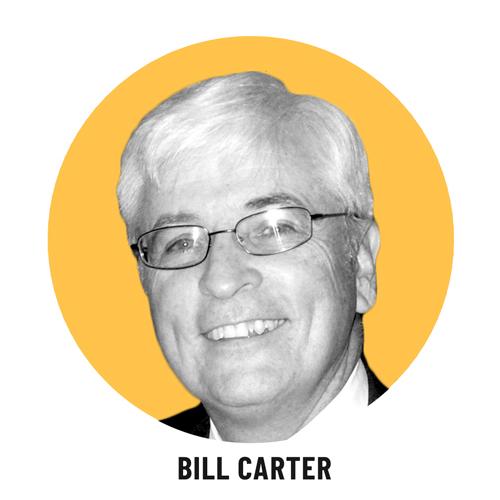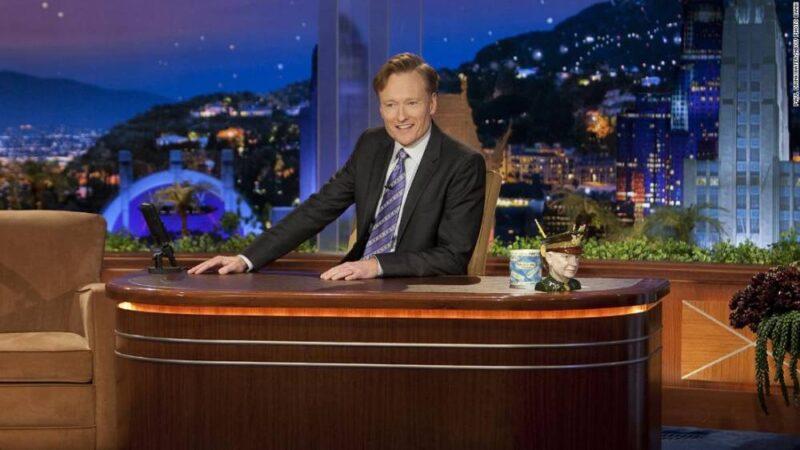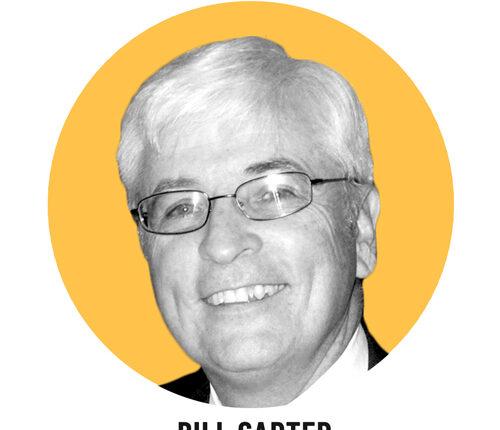Bill Carter, a media analyst for CNN, covered the television industry for The New York Times for 25 years, and has written four books on TV, including The Late Shift and The War for Late Night. The opinions expressed in this commentary are his own.

People are making summer travel plans; cheering fans are going to games; and late-night hosts are returning to their studios with live audiences.
So is all right with the world?
Maybe it’s getting there. Jimmy Fallon is back at 30 Rockefeller Center with a full live audience. Jimmy Kimmel brought back a partial live audience to the El Capitan Theatre in Hollywood Monday night. Stephen Colbert of “The Late Show” on CBS returned with a full live audience last week. Colbert’s return felt a bit like Caesar’s return to Rome after winning the war over Gaul. On its 11 p.m. newscast, the network’s local station in New York, WCBS, even marked the occasion with a countdown clock and a live shot on the sidewalk across from the marquee. As in: This is a big deal, folks.
Even with diminished ratings for the over-the-air broadcasts of late-night shows (replays on YouTube and elsewhere lift the numbers to more respectable levels), the comeback of the familiar format, with real people laughing and applauding, shows just how central late-night television is to American entertainment. The sight of cheering live audiences having a great time together is like a jolt of mutually shared nightly energy for a country beset by shocking death statistics and conflicts over simple acts like mask-wearing. Nothing else can give off the warm scent of comfort television quite like late night, with stars right there on set, often elegantly decked out, engaging in strategically entertaining conversation. And that’s a dish the country desperately needs after so many months of limited rations. Read MoreThe return of live audiences is also hugely symbolic for the grand re-opening of New York City, in particular, the country’s cultural capital. For more than 60 years, a late-night television show has been central to New York nightlife — five nights a week, one of the best tickets in town: a clean, well-lighted place for everybody to hang out in around midnight and have some fun with the events of the day; and a full hour of entertainment — lots of laughs, hot music acts and familiar celebrities hawking their latest projects — for the princely sum of: zero dollars and zero cents.Free entertainment from hugely talented people. What could be better than that?In this case, packed audiences, all fully vaccinated.The hosts certainly seem to agree. When I spoke with Kimmel recently, he talked about the almost surreal nature of having to do these shows for so long accompanied only by the sound of his own voice — no laughs; no music; not even the occasional rim shot.

Why Conan O'Brien was such a brilliant late-night hostColbert and Fallon were certainly raring to go in their returns. Colbert marked the momentous occasion with not one, but two, special song-and-dance numbers, including a duet with his pants. (Because, of course, for much of the past year he had not even been required to wear pants, with the camera shooting him doing the show from his home or his “Late Show” office strictly from the mid-section up.)But the real excitement was the greeting Colbert received from the full complement of acolytes in the Ed Sullivan Theater. The standing clapping crowd, chanting “Stephen, Stephen” went on for several minutes.Fallon received a similar welcoming a week earlier when his studio was stuffed to full capacity. His comeback featured a spectacular production number duet with Lin-Manuel Miranda, celebrating the announced return of Broadway shows in September. How much did playing in front of a real audience matter? Back in March, when “Tonight” brought in partial audiences, Fallon said he’d never been happier in his life performing in front of 58 people.
But through the most disruptive event in the history of television, the late-night hosts did manage to keep their shows alive, despite kids running through the “set,” spouses doing the camera work and awkward, less-than-usually glamorous interviews with stars through the magic of Zoom. And that ranks as one of the most impressive achievements in the recent history of television.That’s over now though. Audiences are back. Real laughter is back. New York is back — or at least close, anyway.
Source: edition.cnn.com

